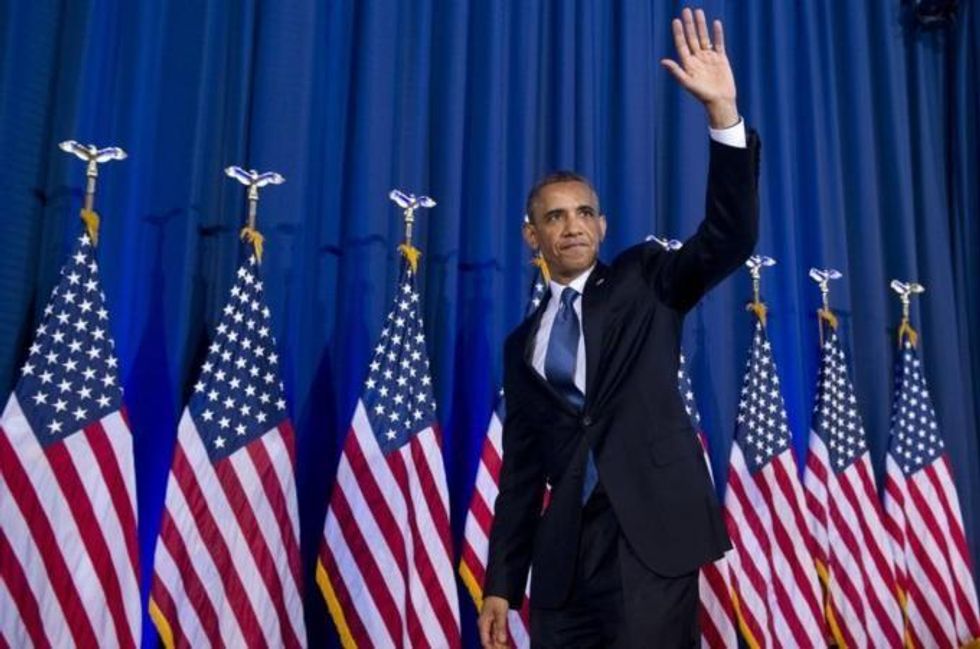In a major address on national security a few days ago, President Obama at last found his voice on the issue of drone strikes. He rejected endless war and secret killings. He admitted that drones are no cure-all for terrorism. He recognized that the best answer for extremism, with its complex dynamics of poverty and political discord, is sometimes not a drone, but diplomacy and aid.
Obama sounded like the president his supporters had hoped for: the constitutional law scholar, the solemn decision-maker and the former community activist who, at heart, would always be more interested in connecting with the world's hopes than its fears. It is unclear whether the reality of America's drone wars will catch up with the best of Obama's rhetoric, and if tighter legal constraints will lead to fewer drone strikes against a shorter list of enemies.
On the secrecy count, however, it is all too apparent that the Administration is not prepared to go far enough in the direction of reform. Though the President has repeatedly pledged transparency, in his speech he failed to signal that basic facts - including how many people have been killed by drone strikes and who they are - will become public. Nor did the President commit to independent investigations of the dozens of credible reports of civilian deaths from past drone strikes.
It is laudable that late last week the Administration acknowledged the death of 16-year-old US citizen Abdulrahman Al-Awlaqi - the son of al-Qaeda in the Arabian Peninsula leader Anwar Al-Awlaq - about whom there is no known evidence of a link to terrorism. But in a bleak harbinger for the incomplete disclosure to come, the Administration provided no explanation for Abdulrahman's death. It acknowledged neither technical error, nor legal or moral fault. It did not describe what, if any steps it has taken since that killing to ensure the same fate does not befall other young men who find themselves under a drone, at the wrong place, at the wrong time.
Without concrete disclosure, full investigation and frank acknowledgement of some failure, the President will remain vulnerable to the charge he sought, in this speech, to counter: that he is hiding the truth about the real impact of drone strikes. Some of his rhetoric about making himself accountable to the public, though compelling, will be empty. Drones will continue to damage American credibility on the world stage, as claims about the extent of civilian deaths - some true, some false - still go unanswered.
The President's failure to fully commit to transparency is short-sighted. Disclosure about civilian deaths and past mistakes is necessary to build public support for his position, articulated in its most bold form yet, against perpetual war. Already, the President faces criticism from Republicans like Senator John McCain, who believe that Congress should authorise the use of force expansively and indefinitely. The President's position against perpetual war is no doubt informed by his knowledge that despite the advance in precision they offer, drones are not fool-proof and they have cost civilian lives. "These deaths will haunt us as long as we live," the President said in his speech.
The trouble is that to the American public, these deaths are nearly invisible. While photos of torture at Abu Ghraib shook the country's consciousness and helped bring the Iraq war to an end, the public is unlikely to learn details about civilian deaths from drone strikes without government disclosure. Few journalists have access to the parts of Pakistan and Yemen where drone strikes occur, and clear and incontrovertible evidence of civilian deaths is hard to come by.
The ultimate danger is that the reforms the President announced this week will give the drone programme a veneer of legality and democratic legitimacy when in fact, it remains a global assassination campaign about which the American public knows little. Without further disclosure, who dies by a drone will still be a matter of speculation - and of hope and faith in a president who has said all the rights things, but provided no proof that they are the reality.




